Aberdeenshire 'mad cow disease' farmer speaks of devastation
- Published
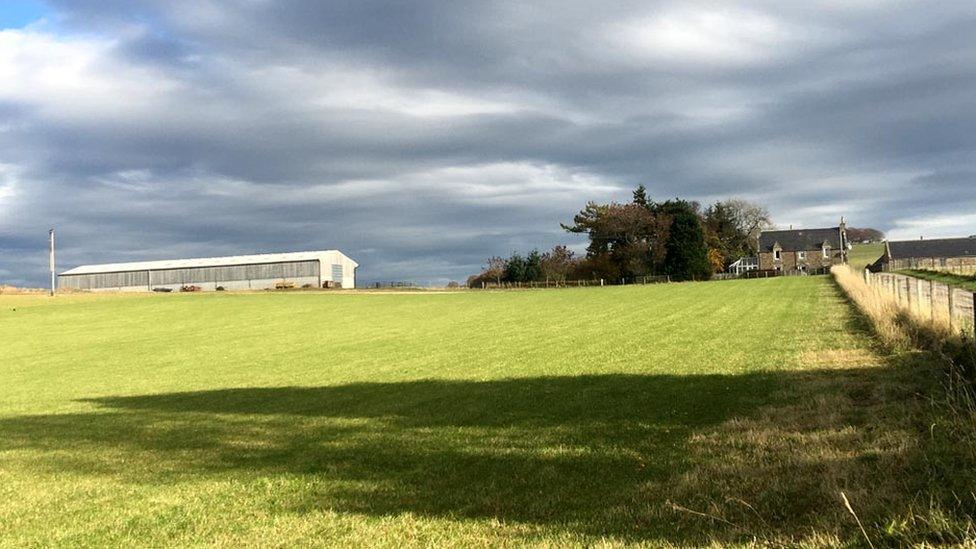
The isolated case involves Boghead Farm in Lumsden
The farmer of the herd found with BSE in Aberdeenshire has spoken of his devastation.
Movement restrictions at Boghead Farm in Lumsden were introduced after so-called mad cow disease was found in one cow.
Speaking through NFU Scotland, Thomas Jackson said: "This has been a very difficult time - we have found the situation personally devastating."
It is the first case of its kind in Scotland in a decade.
In his statement, Mr Jackson explained: "We have built up our closed herd over many years and have always taken great pride in doing all the correct things.
"To find through the surveillance system in place that one of our cows has BSE has been heartbreaking.
"Since this has happened we have been fully cooperating with all the parties involved and will continue to do so as we, like everyone, want to move forward and clear up this matter.
"The cohorts and offspring of the cow have now been identified and as a purely precautionary measure they will be slaughtered and tested in due course; again we are fully co-operating with all the parties with regards to this."
Brain stem samples check
Scotland's Chief Veterinary Officer Sheila Voas said it could be "months" before tests yield definitive results.
However, she stressed that the discovery of the BSE case showed the industry's detection system was working.
The case, involving a five-year-old animal, was identified before entering the human food chain.
The monitoring of BSE has been an important function since the crisis of 1986 when 180,000 cattle were infected and 4.4 million slaughtered in order to eradicate the disease in the UK.
There are understood to have been 16 cases in the UK since 2011, external, with the last in 2015 when farming officials confirmed a case of BSE in Carmarthenshire, Wales.
Ms Voas told BBC Radio's Good Morning Scotland programme: "The animal itself is dead, she died before she was tested, and there are three other animals, possibly four, on the farm that will need to be slaughtered purely as a precautionary basis.
"We'll slaughter them, take brain stem samples and and check them."
She said the disease could occur "spontaneously" and that it was believed this was probably the case at Boghead Farm.
Ms Voas said: "Investigations are ongoing and it could be several months because of the nature of the disease before we are able to say with certainty.
"We do surveillance as a matter of routine as part of controls. Back in the 90s there was a big problem with BSE and we've learned an awful lot of lessons from then and there are various controls in place to make sure that never happens again.
"Every animal that dies over 48 months is tested, we test something like 20,000 samples a year from Scotland, this one was picked up as a result of that, it's the first one that's been picked up since 2008."

Will we find out how BSE infected the cow?
By Kevin Keane, BBC Scotland environment and rural affairs correspondent
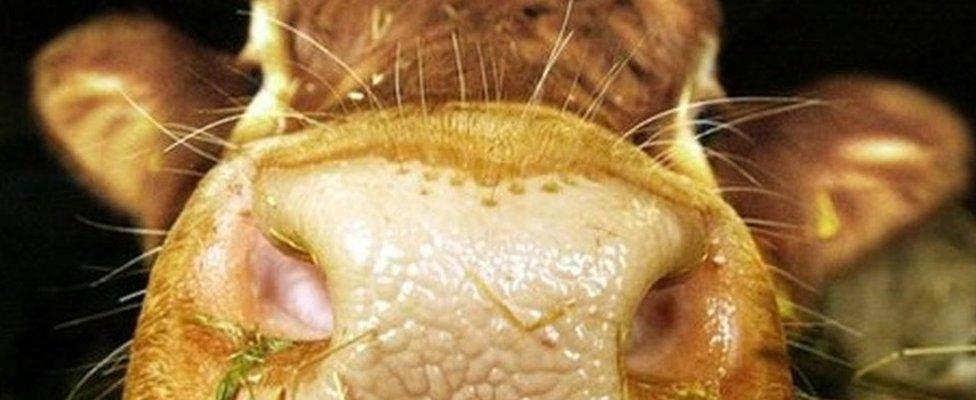
To achieve "negligible risk" status, Scotland had to have 11 years free of BSE from the birth of the last animal known to have it.
So it was a long wait. And one positive test has overturned it.
The status meant a relaxing of some rules governing the way the meat is processed at the abattoir. But much more importantly, it allowed the industry to push harder on the export markets with countries reluctant to deal with nations linked to BSE.
Scotland now falls into line with the rest of the UK which is deemed "controlled risk". Those controls include things like traceability, testing and disposal of some types of offal.
Does it mean the meat is any less safe? Absolutely not. And there's no greater risk to other animals because BSE is not a "virus" which can be caught.
Consumers and farmers clearly have questions about where the BSE came from in the Aberdeenshire cow.
Tests are under way, but the truth is we might never know.
It's assumed cattle can contract it spontaneously; a predisposition through some sort of genetic mutation. Bad luck which is no fault of the farmer. Pinpointing that can be tricky and so many of those questions may never be answered.

'Not the start of an outbreak'
Ms Voas explained that because Scotland had had no trace of the disease for more than a decade it was given the "negligible risk" status.
The effect of the status was that some of the controls required were reduced.
Ms Voas told the BBC: "From the point at which we confirmed this [BSE case] we immediately went back to the previous controls that were in place until 18 months ago."
She added; "All the information we have is this is under control, there's no reason for people to panic.
"It's not the start of an outbreak, it's a single isolated case that won't affect the food chain."
Any farmer with concerns is advised to seek immediate veterinary advice.
Mad cow disease - as it is more commonly known, because of the animals' erratic behaviour and movements - destroys their brains by eating away the nerve tissue.
- Published18 October 2018
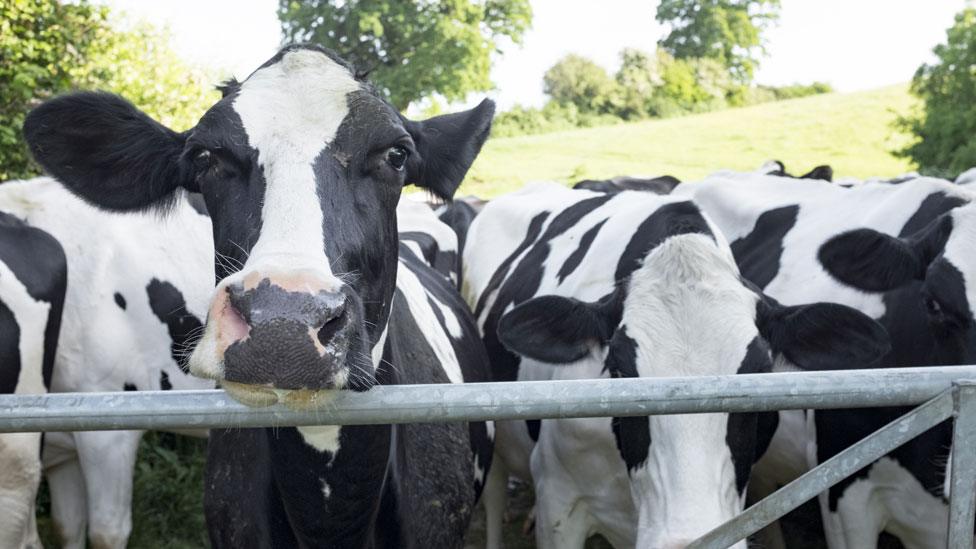
- Published18 October 2018
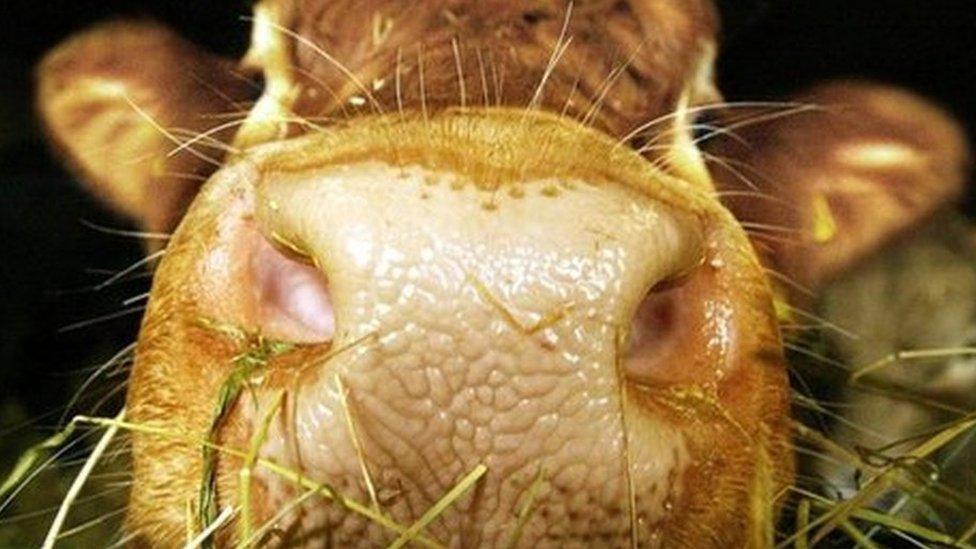
- Published23 June 2016
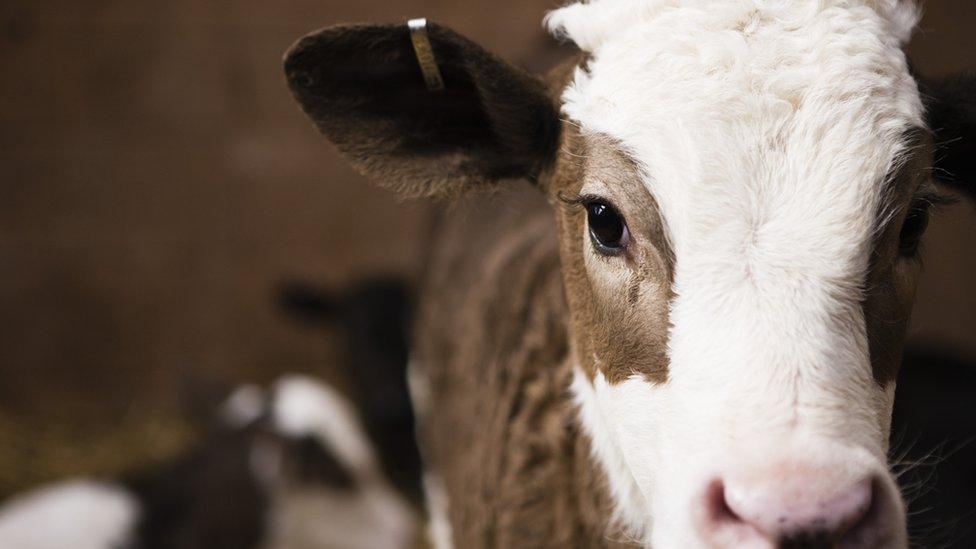
- Published6 October 2015
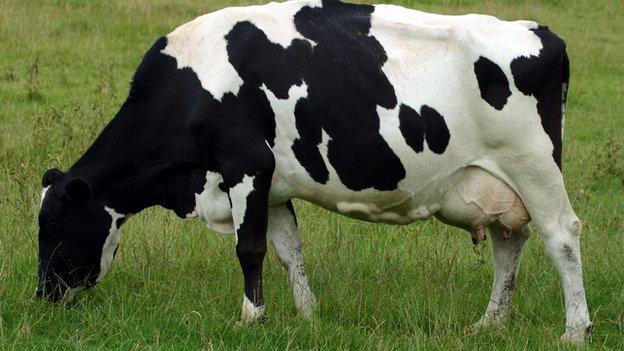
- Published11 September 2010